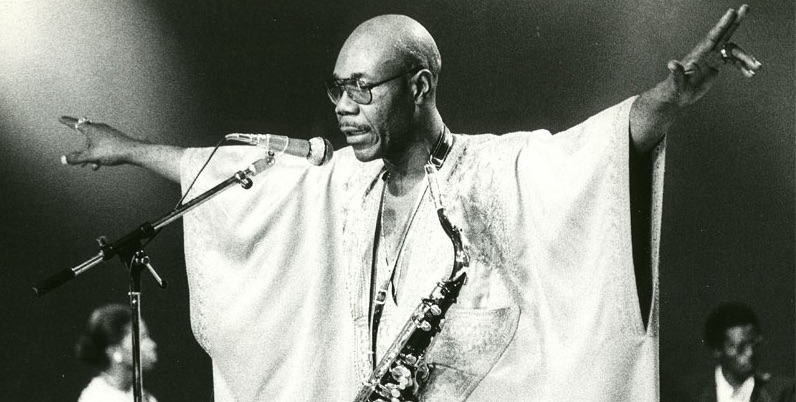COVID-19 claimed the life of Cameroonian Afro-jazz legend, Manu Dibango who died at the age of 86. The family of the Cameroonian singer and saxophonist posted the news on his Facebook page on Tuesday.
The author of one of the biggest planetary hits in world music, “Soul Makossa” (1972), is the first world celebrity to die from the virus. He died in the early hours of the morning in a hospital in the Paris region,” Thierry Durepaire, manager of the artist’s music publishing business, told AFP.
A statement released by the family reads: “It is with deep sadness that we announce to you the loss of Manu Dibango, our Papy Groove, who passed away on 24th of March 2020, at 86 years old, due to covid-19.”
“Soul Makossa”, the song that gave birth to him, has met with an astonishing fate. It started out as the B-side of a single, the main title of which was an anthem for the Cameroonian football team at the African Cup of Nations.
Spotted by New York DJs, the track has touched thousand of lives. Manu Dibango had even accused Michael Jackson of plagiarism on a track from the album “Thriller”. A financial agreement had finally been reached.
His funeral service will be held in strict privacy, and a tribute to his memory will be organized when possible. “ Durepaire told AFP on the singer’s Facebook page, which is maintained by his family and friends.
Manu Dibango
- Born in 1933 in the city of Douala, he attended church from where he honed his music skills.
- Celebrated for a unique blend of jazz, funk and traditional Cameroonian music.
- Influenced bands from Kool and the Gang in the 1970s to hip-hop in the 1990s.
- Best known for his hit Soul Makossa. _Video below_
- He served as the pioneer chairman of the Cameroon Music Corporation.
- UNESCO appointed him Artist for Peace in 2004
- Collaborated with artists several artists including Nigeria’s Afrobeat pioneer Fela Kuti and US pianist Herbie Hancock.
- On record to have sued Michael Jackson and Rihanna in 2009, accusing the duo of unlawfully adopting some of his lyrics. He eventually settled out of court.






